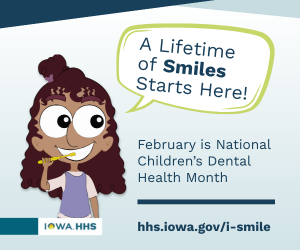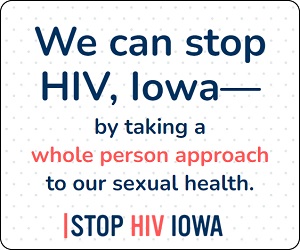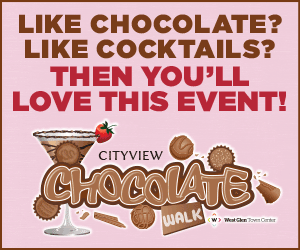Poverty never comes with privilege
2/8/2021I hear a lot about white privilege.
I grew up in Martin county, Kentucky. We were considered one of the poorest counties in the United States. In April, 1964, President Lyndon B. Johnson and his entourage of staff, secret service, media and other politicians swarmed into the county seat of Inez during his war on poverty campaign tour.
Johnson and the entourage rode through our town waving and then proceeded on down route 3, which was less than three miles north of my homeplace. He walked onto the porch of a local family where he did a photo session that would be shown on every media source around the world. He then returned to his Cadillac, came back through Inez and shook a few hands at the courthouse before he boarded his helicopter and left us. He had what he needed which were real pictures of real poverty and a story of real poverty from the hills of east Kentucky. There was nothing about Johnson’s visit that communicated anything about the white privilege of east Kentucky. We had never heard of white privilege. We hadn’t thought much about privilege or poverty either. I don’t think too many of us thought we were poor. We didn’t know the difference really. We didn’t have anybody telling us that we should be demanding equity with others in the country.
After Johnson flew out, we resumed our normal lifestyles. The family pictured in the photo op continued to have a very difficult life of poverty. Even though they had the President of the United States on their front porch, it wasn’t enough to save them from lives of poverty and difficult times. President Johnson’s intentions were good. He led Congress to pass the Economic Opportunity Act in August 1964, which was part of his war on poverty effort. It was a nice gesture.
Unfortunately, families throughout Martin county and east Kentucky still grappled with poverty after the government money and new programs were approved. Common life continued to be living without indoor plumbing. For many people this meant a very difficult life of finding alternative ways to access water. Some people had outdoor wells. They would drop a bailer bucket into a well and “draw” up a bucket of water. Several of my family members had wells of this nature and I remember their water tasting pretty good. This also meant many families did not have indoor bathrooms. Going to the bathroom meant going outside to a tiny little building built over a hole in the ground. In the winter, trudging snow to go to the bathroom at any hour of the day was cruel. This also meant taking a bath by collecting water from the well and carrying it into the house which involved a lot of carrying if you were going to take a bath. The same process occurred when washing clothes. Enough water had to be collected to wash and then rinse the clothes. This was a massive job. Does this sound like white privilege?
By the time I was born, my family had indoor plumbing and we had one bathroom. We still had an outdoor toilet that sat out from the house in the back yard. I tore it down a couple of years back. Actually, it was hard to tear it down because I knew it symbolized a very different era of life which too many of us Appalachian people are all too familiar.
We had terrible water as a kid. It was really bad to drink and terrible for washing clothes. The sulphur in the water would ruin our clothes. This meant my mother was always catching rain water in large tubs outside the house. In dry weather when I was a child we would walk to the creek and carry water back to the house one bucket at a time. That always embarrassed me as a kid. I don’t know why. Most of the people up and down the creek where I lived had to do the same thing plus many of these people did not have indoor plumbing either. Does this sound like white privilege
When school was in session at my elementary called Tomahawk, I sat with classmates every day who came to school hungry. The free school lunch program was the only decent meal they ever got to eat. Several boys in our school who did not have indoor plumbing came to school dirty but would often stand in the school bathroom washing their hands and faces before class. I’m sure some girls did the same thing Our little elementary school bathroom was a luxury to them. Does this sound like white privilege?
I hear all this talk about white privilege. Growing up in an inner-city dwelling is surely filled with hardships, but these dwellers at least have access to a real kitchen, running water, an indoor bathroom and even television and radio reception. These are luxuries that many Appalachian kids did not have growing up. Even today, in too many places in East, Kentucky and throughout Appalachia there are still families growing up without indoor bathrooms, access to water and surviving daily hunger. Internet cannot be found in too many Appalachian areas. These are the scenarios that have become ignored by media, government and employers. Thank God it’s not even close to what it once was, but I’ve been in the hollers of the mountains and seen enough to know poverty is still real and a cruel existence.
Today, 14 of the 50 poorest counties in the United States are all from the same east Kentucky region that Johnson visited in 1964. For Martin county, “The per capita income is just over $18,000,” according to the 2019 Census reporter. Twenty-six (26.3) percent of the county is still at the poverty level according to Data USA with a median household income of $35,125. The county is 99 percent white. Does this sound like a place of white privilege? McCreary county is located in the Daniel Boone National Forest in southern Kentucky along the Tennessee state border. The only county nationwide where most households earn less than $20,000 a year, McCreary is the poorest county in both Kentucky and the United States. The life expectancy is just 73. (USA Today) Does this sound like white privilege? The Washington Post reported that the life expectancy for the 5thdistrict in Eastern, Kentucky is less than 73, making it the shortest life span expectancy in the United States. Owsley County Kentucky’s life span expectancy has been reported to be 67.3 years while in San Jose, California, the life expectancy is 83.
The white privilege I enjoyed as a kid was that I was fortunate to be raised around hard-working people. My dad spent four hours a day driving to and from Holden, West Virginia, to work in an underground coal mine. He spent more than 30 years stooped over, on his knees or on his back in a dark coal mine. He made a living until at the age of 55 his health started failing him and he had to quit. He and my mother kept food on the table. We raised a garden. We had livestock. My family worked hard. My uncles and aunts farmed and worked whatever jobs they could find to make ends meet. My grandfather and grandmother Hinkle worked in a very small grocery store six days a week until he was 83 and she was 80. They worked hard until they died. No one had unemployment checks rolling in. No one had Social Security Disability checks. No one was receiving stimulus checks. There weren’t food stamps or other federal or state money available to help anyone out. Our family had a mindset to work because that was our only means of surviving.
I have never experienced anything like what some of my American friends have experienced growing up. Or, what some still experience. I’m certainly not intending to belittle your experiences or trying to “one up you” on who was poorer or had it harder. Just be aware that Appalachia is still filled with hurting, poverty-stricken people of different colors. Poverty never comes with privilege, regardless of color. ♦
Dr. Glenn Mollette is a graduate of numerous schools including Georgetown College, Southern and Lexington Seminaries in Kentucky. He is the author of 12 books including Uncommon Sense. His column is published weekly in more than 600 publications in all 50 states.















My DAD was a MINSTER, he took care of the little TURKEY CREEK CHURCH of the NAZAREN. On TURKEY. He also worked in the WEST VIRGINIA .coal mines, He would leave home on Monday mornings stay in a little house in RED JACKET WEST VIRGINIA all week . Then he come home on Friday evenings and go out on the creek to visit people for church.
You have a couple things going one here, Glenn. You have a nice memoir of hard times prior to and after 1964, But, “Thank God it’s not even close to what it once was, but I’ve been in the hollers of the mountains and seen enough to know poverty is still real and a cruel existence.” The other thing is your unwieldy attempt to bring “white privilege” into play, contrasting it with “Growing up in an inner-city dwelling is surely filled with hardships, but these dwellers at least have access to a real kitchen, running water, an indoor bathroom and even television and radio reception.” I assume you mean “black” dwellers. This is not at all what “white privilege” means. Yes, poverty does come with privilege for the poor with white skin, whose voting rights (one example) were never questioned, nor forced to use the “colored” facilities, attend segregated schools, never enter a restaurant that served whites only.
I am a product of white privilege. I was raised in an upper middle class family and have never known financial hardship.
I worked hard all my life and increased my wealth accordingly. I formed friendships with minority colleagues, but never experienced what they have during their lifetime. While some of my white friends have been through some degree of hardship, it is beyond my comprehension to have family or friends in prison, or subject to arrest for misdemeanors in which I would never be arrested, or losing friends or family members from gun violence, childbirth or disease at much higher rates than whites. The simple fact is that a disproportionate number of Black or Brown Americans have been unable to acquire health and wealth compared to white Americans, in spite of public assistance. Good health and wealth are privileges. Racism is increasing income and voting inequality while denying white privilege.